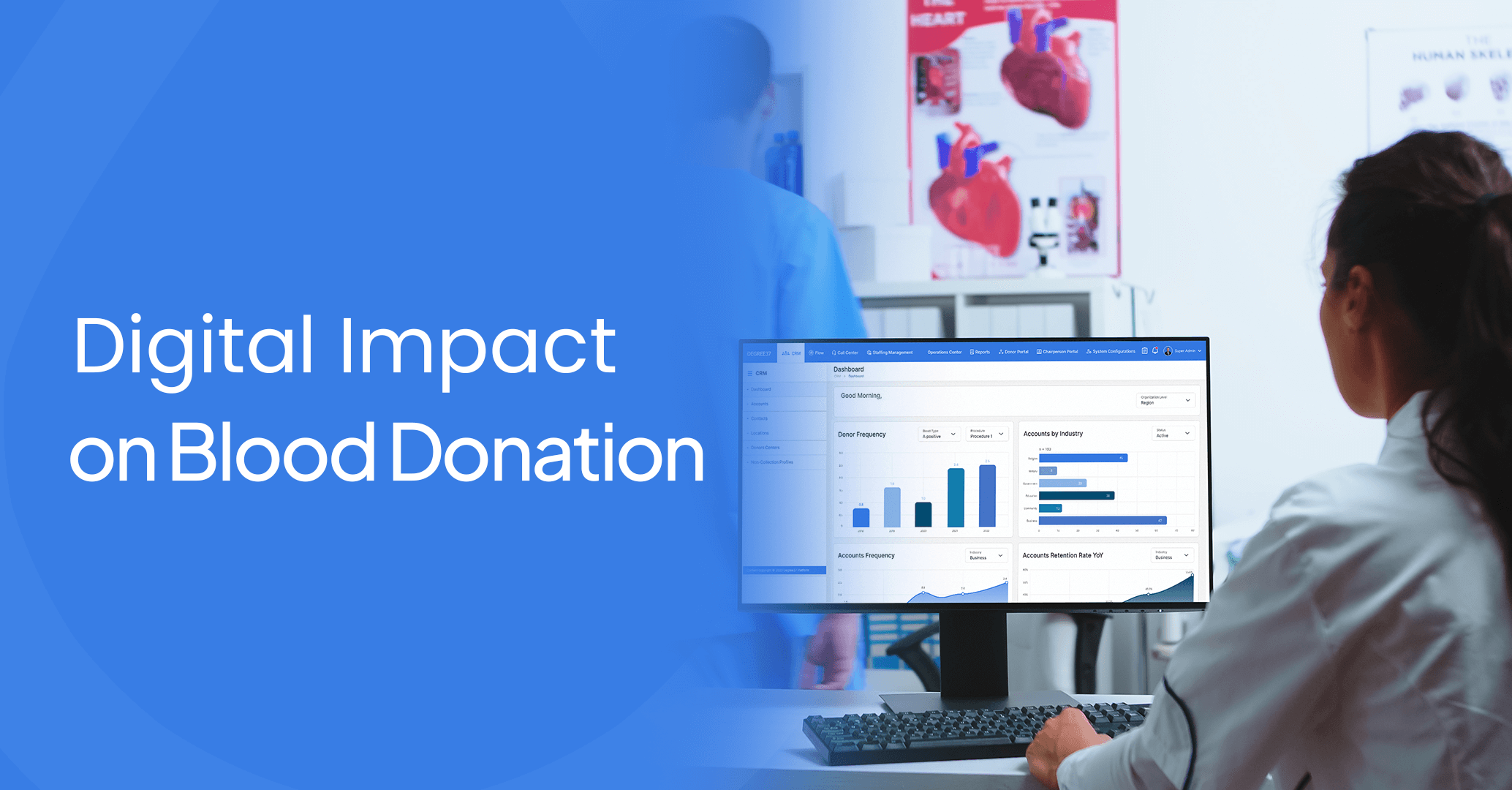Blood donation is a vital part of healthcare systems around the world. Having access to safe and adequate blood supplies is crucial for surgeries, cancer treatments, chronic illnesses, and emergency medical care. However, blood donor recruitment and retention have become increasingly challenging in recent years due to a variety of factors including aging populations, busier lifestyles, and lack of awareness. This is where digital transformation can play a pivotal role in transforming and optimizing blood donor management.
Wider Reach to Donor Audiences
Digital solutions are enabling blood collection agencies to modernize their operations, connect with donors more effectively, and build robust donor databases. From recruitment to collections to communications – technology helps drive productivity and efficiency at every stage.
One major impact of digital transformation is the ability for blood agencies to tap wider donor audiences. With sophisticated data analytics tools, donor demographics and trends can be closely monitored. Targeted digital campaigns and outreach programs can then be rolled out to recruit donors from high-potential segments. Online registration and scheduling have also made it easier for younger, working professionals to donate blood at their convenience. Virtual donor centers are further expanding the pool of registered donors.
Enhanced Donor Engagement
Digital platforms are also increasing engagement levels and building long-term relationships with donors. Blood donor apps provide handy tools for donors to track donations, set reminders, earn rewards, and manage appointments. Features like gamification make the experience more rewarding. Two-way communication channels also allow personalized and context-specific interactions with donors. Agencies can deliver tailored content, share success stories, and provide better care to donors digitally.
Data-Driven Decision Making
Robust donor management systems (DMS) and customer relationship management (CRM) software are enabling agencies to capture extensive donor data. End-to-end workflows – right from registration to screening, collections, processing, testing and storage can be effectively managed. Data analytics reveals key insights into donor behavior, engagement metrics, operational bottlenecks, and more. This is vital for strengthening donor programs through evidence-based strategies.
Emerging Technologies
Other key technologies improving blood donor management include:
- Internet of Things (IoT) sensors for real-time monitoring of blood products. This enhances traceability and safety.
- Artificial Intelligence (AI) chatbots for faster query resolution and better donor assistance.
- Cloud computing and storage for easily accessible and secure donor data.
- Mobile apps for on-the-go appointment booking and update notifications.
- RFID tags for tracking blood units seamlessly across the supply chain.
- Robotic Process Automation (RPA) bots handling repetitive back-end tasks efficiently.
Measurable Improvements
The benefits of digitally transforming blood donor management are multi-fold. Studies show it improves overall collection numbers by 7-10%. Digital channels also increase engagement rates by 15-30%. Operational costs reduce by 12-18% through optimized workflows. Man-hours required per donation decrease by 20-25% as processes get leaner. And there is 90% higher accuracy of donor data.
Ultimately, these enhancements translate into larger and more engaged donor pools. Digital transformation empowers agencies to meet rising demand in a challenging environment. But most importantly, it helps save millions of lives by ensuring blood is available on time and across healthcare systems.
Key Success Factors
However, some key factors need consideration when digitizing blood donor programs:
- Privacy and data security mechanisms must be robust, especially with sensitive medical data.
- Technology adoption needs to be paced suitably to account for change management challenges.
- Systems must be reliable and user-friendly to drive donor confidence.
- Omni-channel strategies are ideal to reach different donor demographics effectively.
The Road Ahead
In the fast-evolving digital landscape, standing still is not an option. Proactive transformation is imperative for blood agencies to stay vigilant. Technology platforms must be continuously evaluated and upgraded. Skills development should enable teams to extract maximum value from new tools. Donor-centric innovation should aim to make giving blood as easy and fulfilling as possible. These efforts collectively will amplify the lifesaving impact of blood donations.
Final Thoughts
The digital transformation in blood donation management is a testament to how technology can enhance and save lives. By making the process more efficient, transparent, and user-friendly, it encourages more people to donate blood, ultimately saving more lives. As technology continues to evolve, it holds the promise of further innovations in blood donation management, making it even more efficient and accessible to all.
The integration of digital technologies into blood donation management is not just a trend; it’s a necessity that ensures the sustainability of blood supplies and enhances the healthcare system’s ability to save lives. The journey of digital transformation in this field is ongoing, with new technologies and innovations around the corner, promising to further revolutionize the way we think about and manage blood donation.
Get in touch with us to explore how digital transformation can optimize your blood donor program. Our team of experts can study your current workflows and processes to identify opportunities for technology integration and process improvements. We can implement robust cloud-based DMS, CRM, and business intelligence modules tailored to your specific needs. Contact us for a consultation today.
